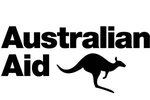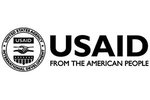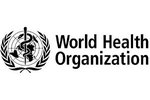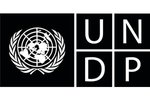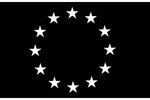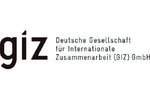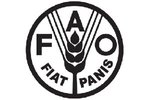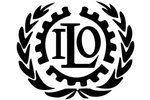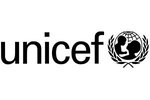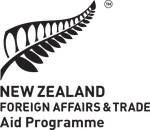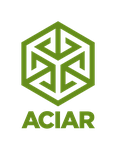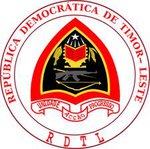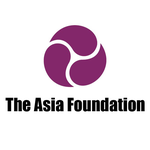Catalpa News | Midyear Updates
Catalpa Quarterly Newsletter | July 2023
In the world of international development, the presence of numerous experts is a common occurrence. However, in a recent blog Catalpa Director and Co-Founder David Roach argues that true development expertise may be unattainable.
‘Experts’ bring a singular perspective, shaped by their own expertise and experience. Instead, the emphasis should be focused on achieving authentic buy-in, where those most affected by a problem actively participate in the decision-making process.
By utilising human-centred design and design thinking methodologies, development organisations can create structured, interactive environments that foster collaboration, problem-solving, and ideation.
Through this inclusive approach the development sector can learn from the true experts: those with lived experience who understand the intricacies of challenge and context. Read the blog
National rollout of Bilum: Papua New Guinea’s new district information system
Under the leadership of new team leader and experienced public administration governance practitioner Christine Boude, the Bilum program with GoPNG's Department of Implementation and Rural Development (DIRD) has progressed to Phase 3.
Bilum falls under the Building Community Engagement Program (BCEP), an $87.5m initiative with the goal of strengthening citizen-government engagement for improved service delivery and provision of public goods. The Bilum program specifically answers to one of the five components of BCEP; to increase efficient and meaningful Papua New Guinea Government Partnerships
Bilum includes the design and delivery of a fully integrated SIP-MS & DIMS platform to manage regional project and service data.

The platform will serve all 118 Papua New Guinean electorates (22 provinces and 96 districts), and manage reporting against an estimated expenditure of A$650 million per year.

Following successes in Phase 1 and 2, the program continues to improve and develop the platform, working with provincial partners to test the system in Nuku and Wabag. Support to DIRD in effectively managing a phased national rollout of the platform will be a key focus of Phase 3 of the program.
Following a successful two day participatory workshop supporting integration of DIRDs Phase 3 objective of institutionalisation of the platform into its corporate planning processes, the positive momentum of program initiatives and clear ownership by DIRD was clearly demonstrated.
The workshop mapped challenges, identified capacity and resource gaps, developed goals and set action plans in preparation for the official national platform launch scheduled for July. With the department renaming the platform ‘Bilum’ the transfer of management of the platform to DIRD heralds the start of a focus on partnership in implementation of the final phase of the Australian Government funded intervention.
Bilum is an Australian aid initiative implemented by Catalpa International on behalf of the Australian Government.
Testing begins on platform to manage rural development in Timor-Leste
Following the development of a proof of concept (Minimum Viable Product or MVP) in late 2022, the first iteration of the Ida platform, developed under the PARTISIPA program, has been deployed and is now undergoing testing by a group of users.
The platform is a complete redesign of the existing system used by National Program for Village Development (PNDS), the organisation responsible for improving socio-economic conditions and local governance for village men and women in Timor Leste through community managed infrastructure.
The first release of the new platform delivers offline-enabled data collection, data validation, powerful analytics, as well as new Suku (village) profiles and a project manager component - all designed with a beautiful, user-friendly interface. Upcoming releases will see the addition of an issue tracker for complaints, Suku priorities for investments and expansion of existing functionalities.
The program and platform are designed to assist the Timor-Leste Government to monitor and measure the impact of the PNDS for better resourcing and impact. It is currently on track to have all users migrated to the fully functional new system by October this year.
🤝 Thank you to #AustralianAid for supporting the program.
Strengthening ties between Pacific teachers
The Pacific eLearning Program has continued to connect teachers across Cook Islands, Samoa, Solomon Islands and Vanuatu with the first regional Community of Practice.
More than 60 teachers logged on for the recent online session to discuss their experience participating in the Pacific eLearning Program.
It was heartening to hear how the program has expanded ways of teaching "from chalk and talk" to greater interaction with students through the integration of smart, simple technologies.
The program improves teaching and learning through a two-pronged approach, improving teaching resources for the classroom through culturally and geographically contextual lesson activities, while also offering flexible job-embedded professional development opportunities for teachers. Both are enabled through a custom, mobile-first web app, called Pacific Learn (developed using Bero).
The positive engagement and outcomes of the program are largely attributed to the design and implementation methodologies centred around empowering Pacific peoples to co-create content suited to their specific context.

Integration of science and local experiences… makes science education more meaningful for the learners. They apply the science to what happens in their lives on a daily basis.

Using a “kitchen science” approach, the program engaged local science experts in each of the 4 participating countries, who worked through curriculum co-design with learning designers to develop Pacific-centred science activities and support for teachers to deliver the activities through training and mentoring.
At an operational level, the team leader is a Pacific woman, and country-based program staff were embedded within national education ministries. This ensured localisation and indigenous knowledge was privileged, and that processes and ongoing maintenance are understood by those in national and regional systems, who will ultimately take over the program for ongoing viability and sustainability.
Thanks to our partners: Nanogirl Labs, Te Pūkenga (formerly Wintec), and to MFAT for supporting the Pacific eLearning Program.
Indigenous Health: Listening, Learning and Sharing
Catalpa’s health skill training specialists, Rebekah Ilave and Kara Chesal, joined the impressive list of speakers at the Lowitja Institute’s International Indigenous Health and Wellbeing Conference held in Cairns during June.
The pair hosted a session discussing Kumul Helt Skul; a culturally-relevant, job-embedded professional development program for Papua New Guinea health workers, developed in close partnership with government and PNG clinicians.
Thank you to the Lowitja Institute for the informative, thought-provoking agenda, it was great to connect with Indigenous leaders from across the region. We gained many insights that will inform better program design, implementation and evaluation across all sectors.
A nurse’s story: A new way of learning in PNG Hospitals
Sister Daisy Langu is an emergency department nurse at ANGAU Memorial Provincial Hospital, Papua New Guinea. She recently participated in Kumul Helt Skul, a job-embedded professional development program, offering courses via mobile phone. Read more.
Thanks for reading! To receive our quarterly newsletter simply sign up on the form below. You might also like to check out our current job vacancies.
